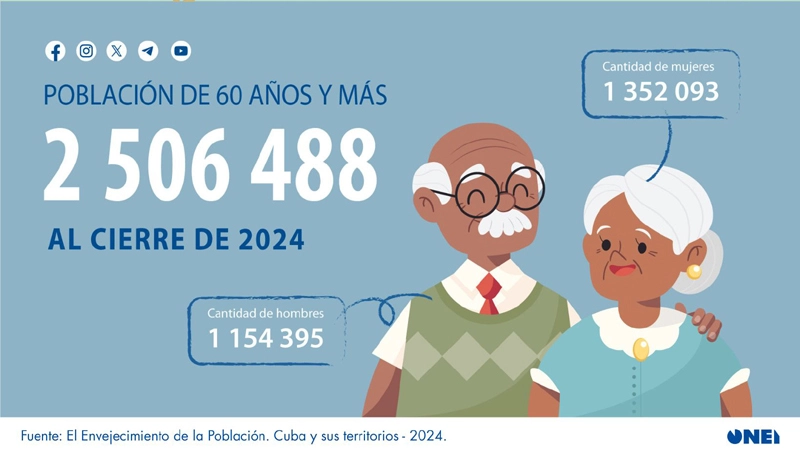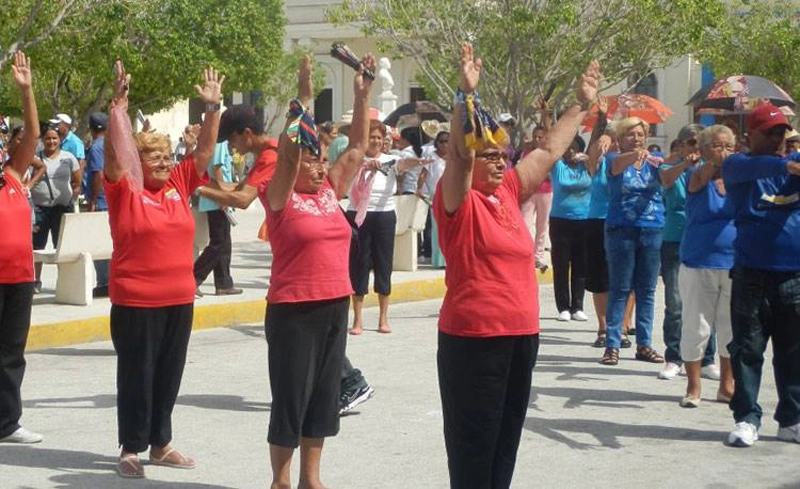The world is facing a context where demographic change is manifesting itself strongly. With the population aging at an unprecedented rate. According to the World Health Organization (WHO), it is estimated that by 2050, the number of people over 60 years of age will exceed two billion. Representing a significant challenge for our societies.
This phenomenon not only implies an increase in the number of older adults. But also the urgent need to adapt our policies and programs to ensure their well-being. The protection and support of the elderly must be a priority both within the family and within society and government.
In a highly aging population like Cuba’s, approximately two million 506,488 people aged 60 were reported at the end of 2024. A figure that places the country as the oldest in Latin America and the Caribbean.
According to the Cuban National Office of Statistics and Information. The provinces with the highest rate of aging last year were Villa Clara (29.1 percent) and Havana (28.1 percent). However, the province with the lowest rate of aging continues to be Guantanamo, at 22.5 percent.
Holguin, not exempt from this phenomenon, exceeds the national average for aging. According to data published in early 2025 on the Government/Holguin website. Rural areas such as Baguanos and Calixto Garcia are the most affected. With communities where young people are migrating to provincial capitals or abroad.
All of these data, both nationally and provincially, warn of the pressure on services such as public health. Where the demand for geriatric care is growing while the active workforce is declining.
Furthermore, the lack of attention to the needs of this group in various areas can result in increased vulnerability, loneliness, and social exclusion. Therefore, from the family level, it is essential to promote a culture of respect and care for the elderly.
Families in Holguin must be aware of their role in providing emotional support and guidance. As well as in promoting active and healthy aging. However, this responsibility cannot fall solely on households. It is imperative that communities organize to provide inclusive spaces where seniors can participate and contribute.

At the governmental level, a more forceful and prompt comprehensive vision is required. One that includes policies that promote the quality of life of older adults. This includes access to adequate health services. Also training and employment programs that allow them to remain active in an economy marked by inflation. As well as initiatives that encourage their participation in social and cultural life.
Holguin society, as a whole, has a responsibility to recognize the value that our seniors contribute and to actively work to build a future where every stage of life is dignified and respected.
Let us face the challenge of population aging together with inclusive and supportive policies that guarantee a healthy and active retirement for all. Where love and respect prevail for those who have already given us the best years of their lives.
By: Leannis Berbén Leyva
- Holguin Develops Electrical Strategy to Protect Vital Services - 24 de February de 2026
- Listening to your favorite music activates the brain’s opioid system - 24 de February de 2026
- Foreign Minister Calls Fuel Blockade Against Cuba Criminal - 24 de February de 2026

